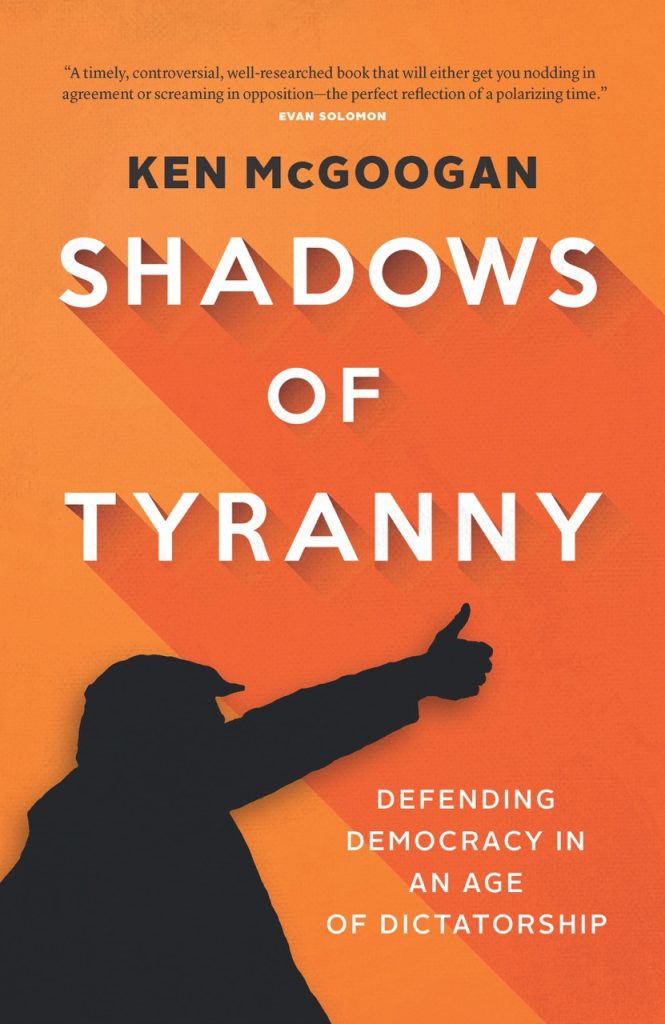
What was your goal while writing this book?
One early title for this book was Awakening to Invasion: A Resistance Narrative Ranging from Hitler and Stalin to Donald J. Trump. You can see why we toned it down. It does have the virtue of clarity, however, because my goal was to awaken Canadians to the rise of fascism in the US and the attendant threat of invasion, be it military or economic.
Was there a book or piece of writing that made you want to pursue writing as a career? What was it?
My father, born in the early 1920s, sang the praises of John Steinbeck, Ernest Hemingway, Thomas Wolfe, and F. Scott Fitzgerald. By the time I was twelve, I wanted to be a writer. The celebrated Jack Kerouac novel On the Road inspired me to venture out into the great wide world. Kerouac was adventurous, an explorer, a writer who reveled in real-world experience. Not only that, but like me, he was part-Quebecois. That sealed the deal. My first novel, as distinct from work of nonfiction, was Kerouac’s Ghost, in which my fictionalized narrator wrestles with the ghost of JK while working as a fire lookout in the Canadian Rockies. And when, while I was living in Calgary, the Alberta legislature set out to ban Steinbeck’s Of Mice and Men, well, I responded by writing a song: https://www.youtube.com/watch?v=aeuGZkSNPPQ&list=RDaeuGZkSNPPQ&start_radio=1
Who/what were your influences while writing this book?
The conceptual framework of Shadows of Tyranny encompasses writers who have written speculative fiction, essentially dystopian novels. Margaret Atwood, George Orwell, Yevgeny Zamyatin, and Sinclair Lewis extrapolated from “the present” while forecasting totalitarian futures. Philip Roth wrote an alternative history in which a racist, authoritarian America declares war on Canada. Farther back, H.G. Wells wrote War of the Worlds, which depicts an invasion by a vastly more powerful enemy. Together, these works constitute a cautionary allegory.
My vision of the present day is informed by writers such as Anne Applebaum, Robert Reich, Timothy Snyder, Jason Stanley, Miles Taylor, Liz Cheney, Masha Gessen, and Ruth Ben-Ghiat. They pointed me to the barricades. In June 2022, in a blog post, I wrote that “the American fanatics who recently turned back the clock 50 years . . . are just getting started. They are bent on turning America into a totalitarian state. First the rights of pregnant women. Next those of gays, of non-whites, you get the idea. Think Germany — not of the 1940s and full-blown Nazism but of the 1930s and the rise of fascism. And Canada? Well, we are cast in the role of 1930s France. You remember: the peaceable country that got invaded, occupied, and abused by its far more powerful neighbour?” https://kenmcgoogan.com/2022/06/28/happy-wake-up-to-canada-day/
During the rise of the Nazis, any number of journalists sounded the alarm. These included Americans like Dorothy Parker and Martha Gellhorn, as well as the unsung Canadian Matthew Halton, a young correspondent from Pincher Creek who wrote an eye-opening 10-part series on the events unfolding in 1930s Germany. They belonged to a resistance that included many Canadians, all of whom figure in my book – among them political leaders (Lord Beaverbrook), medical doctors (Norman Bethune), spymasters (William Stephenson), and soldiers (Farley Mowat and Tommy Prince). These inspirational figures taught me that defeating fascism requires extraordinary courage and resolve.
What is one thing you learned while writing this book you wish everyone knew?
Writing this book, I learned something that is fast becoming a truism – that HISTORY does not repeat itself, but often it rhymes. The current rise of authoritarianism in the US strongly resembles the Nazi takeover of Germany in the 1930s. Today is rhyming with yesterday. And Canada looks to be cast in the role of France, which, of course, was invaded and occupied. I believe that Canadians are finally awakening, and I hope they become increasingly aware of the dangers ahead.
Tell me a bit about why writing about Canada/Canadians is important to you?
I called my first book, published in 1991, Canada’s Undeclared War: Fighting Words from the Literary Trenches. I see a direct line from that work through 50 Canadians Who Changed the World to Shadows of Tyranny. Along the way, I wrote six books about the exploration of the Canadian Arctic, from Fatal Passage to Searching for Franklin. With this last, I believe I solved the Great Canadian Riddle: what was the root cause of the disaster that befell the final Arctic expedition led by Sir John Franklin? Three more of my books explore the way Canada has been impacted by the Scots and the Irish. My work-in-progress is tentatively entitled Awakening to Canada: American Invaders Meet the Ghosts of Montreal.
So, yes, I look to be obsessively focused on Canada and Canadians. I think it’s because, as Norman Levine once wrote, “Canada made me.” I grew up in small-town Quebec and Montreal, earned university degrees in Toronto and Vancouver, and worked at major daily newspapers in Toronto, Montreal, and Calgary. Before that, I picked tobacco in Tillsonburg and potatoes in New Brunswick, and survived a stint on the green chain in Nelson, B.C. I spent one summer as a fire lookout in the Rockies, three months at Berton House in Dawson City, and went voyaging repeatedly in the Northwest Passage. For years, I taught creative writing at universities in Toronto and Halifax. While outside the country, I brought Canada with me, whether backpacking around Europe, working as a bicycle messenger in San Francisco, or teaching French in Dar es Salaam, Tanzania. With my life partner, Sheena Fraser McGoogan, and our two kids (now adults), I hauled a tent trailer back and forth across the country. I could go on, but you get the idea: I owed this country everything. Canada made me.

